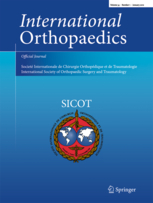
Arthroplasty
Use of hand-held navigation surgical aid may improve accuracy in minimally invasive TKA
This report has been verified
by one or more authors of the
original publication.
Int Orthop. 2016 Jan;40(1):51-7
80 patients with surgical indications for the treatment of knee osteoarthritis were randomized to receive minimally invasive total knee arthroplasty (TKA) either with or without the aid of a novel computer-assisted hand-held navigation device. The purpose of this study was to determine whether the use of a hand-held navigation device (iAssist Knee System, Zimmer, US) would improve the overall accuracy of surgery by reducing the incidence of malalignments. The findings of this study indicated fewer malalignments with the navigation device, with similar component flexion, operation time, bone cutting time, and perioperative blood loss.
Unlock the full article
Get unlimited access to OrthoEvidence with a free trial
Start TrialCritical appraisals of the latest, high-impact randomized controlled trials and systematic reviews in orthopaedics
Access to OrthoEvidence podcast content, including collaborations with the Journal of Bone and Joint Surgery, interviews with internationally recognized surgeons, and roundtable discussions on orthopaedic news and topics
Subscription to The Pulse, a twice-weekly evidence-based newsletter designed to help you make better clinical decisions
Exclusive access to original content articles, including in-house systematic reviews, and articles on health research methods and hot orthopaedic topics
Or continue reading this full article
Register Now

Subscribe to "The Pulse"
Evidence-Based Orthopaedics direct to your inbox.





































